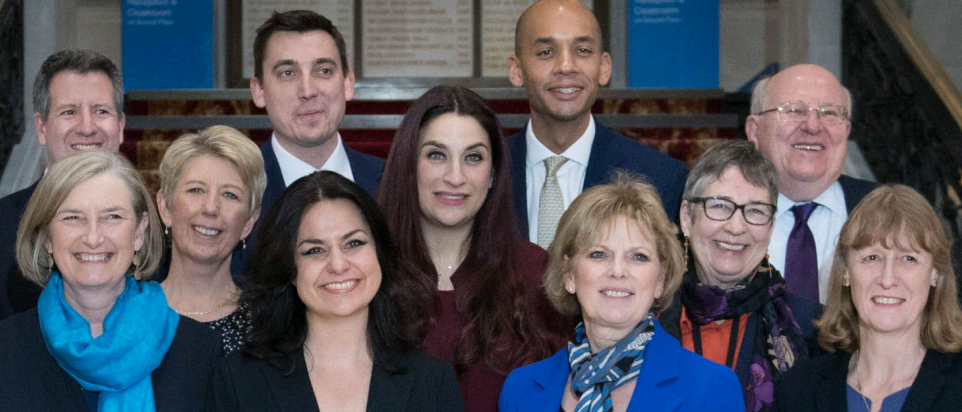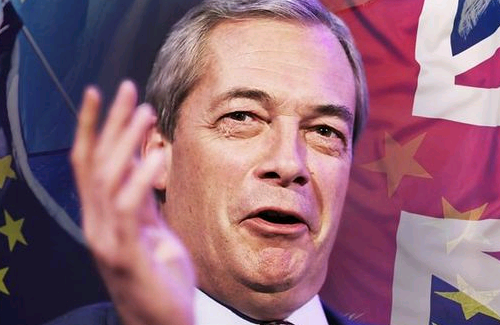Those who believe in the lessons of history will not be surprised at a breakaway group of MPs, mostly from Labour.
There are parallels with the birth of the SDP – but important differences.
Before Corbyn the hard left had been marginalised for decades, their previous high water mark was shortly after the formation of the SDP when Benn narrowly failed to become Deputy Leader in 1981, but had a major effect on the 1983 manifesto, the longest suicide note in history.
The 1981 split was triggered by the anti-European, anti-nuclear policies and hard left economics after Foot replaced Callaghan, together with the influence of the Militant Tendency.
It could be argued that the circumstances that caused the split only existed for a few years but the SDP is reckoned to have helped keep the Conservatives in power throughout the 1980s.
After Thatcher’s 1983 landslide Kinnock started the process that led to New Labour, a social democratic – not socialist – party like some European centre left parties.
Fast forward to the present and the inmates are now in (almost) complete control of the asylum and there are many square pegs in round holes.
Forget the “kinder, gentler politics” and “magic grandpa”, Labour is now dominated by hate fuelled ideologues who loathe wealth and success, market economics and “The West”, perpetrate an oppressor/oppressed narrative and particularly despise anyone to the right of the Dear Leader.
So, what about the TIGers?
An early election is unlikely as they’d be wiped out without an activist base so they probably wouldn’t currently support a vote of no confidence.
Recruitment may not be too difficult, most SDP members had not previously been in a political party and then there are the disaffected in existing parties. Although Labour membership increased under Corbyn there has been an exodus of those against the hard left‘s economics and worldview.
A reasonable initial performance in the opinion polls isn’t unexpected, it takes courage to leave a party you’ve been a member of for a long time and that could resonate, particularly when some have, effectively, been hounded out. Labour loses most as it’s seen as intolerant.
The SDP had David Owen, Shirley Williams and Roy Jenkins, big beasts in the Westminster jungle.
In contrast the TIGers are political pigmies who believe in motherhood and apple pie.
Oh, and they’re against Brexit, but the LibDems haven’t prospered in the 48% pool and this has to be resolved soon to end the uncertainty.
Take Brexit out of the picture and the lessons from the 1980s can be considered.
First Past The Post “suppresses” third parties so a successful insurgent has to “kill off” an incumbent and it’s a century since their Strange Death resulted in the Liberals being replaced by Labour.
The SDP benefited from novelty but Labour wasn’t completely captured by the hard left. Kinnock parked his tanks on their lawn, their raison d’etre disappeared and they merged with the Liberals in 1988. In retrospect Kinnock’s pragmatism sounded the SDP’s death knell.
The TIGers could facilitate a majority Conservative government and Labour’s response will be important.
Economically Corbynism is large state, high taxation and high spending. Politically it’s an inversion of the long-standing consensus on international relationships.
Before the TIG the main parties had been close in the polls since the 2017 election but Corbyn plummeted as his hard left worldview was showcased, and challenging proposals to ban Hezbollah, his “friends”, makes a change unlikely.
Corbynistas advocate “democratisation” (essentially a tyranny of the majority); empowerment of the membership. They favour All Member Meetings in constituency parties instead of a committee of branch representatives and affiliated organisations such as unions.
It’s not known how far democratisation will have progressed by the next election but, based on 2017, Corbynistas will look anywhere except in the mirror to apportion blame.
It’s possible to foresee a defeated Labour controlled by useful idiot ideologues who have marginalised previously important affiliated organisations such as unions, retreating further into its comfort zone. Any replacement for Corbyn will probably come from under the same stone.
There are then three groups to consider: Corbynsceptics who stayed, soft/centre left types and affiliated, but now marginalised, organisations. All could find a home in a social democratic TIG which should be attractive to left of centre, and centre, voters repulsed by the hard left worldview.
This would owe more to Methodism than Marxism and could be in a good position to replace a Labour Party primarily concerned about ideological purity. A 21st century Dangerfield might pen The Strange Death of Corbynite Labour.
The above is a scenario based on observation of the Corbynista mindset and extrapolation of existing trends. It mainly depends upon Labour losing the next election and not changing direction.
This is a guest post by John Wall





